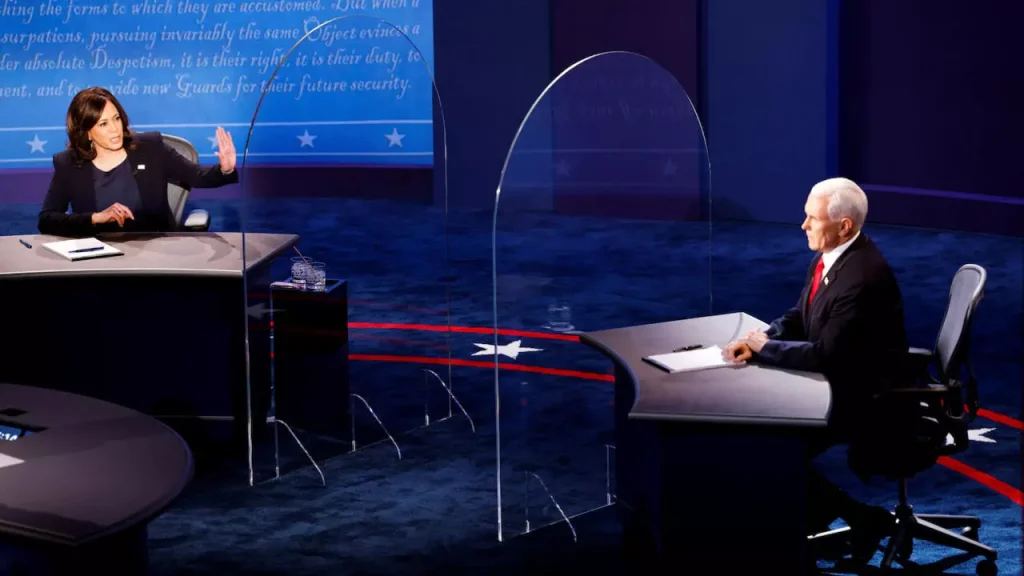Vice-presidential debates have become little more than a sideshow to the main event over the past few decades, producing little to no fireworks or fanfare, and the recent debate was no exception. Not since Lloyd Bentsen’s mic drop on Dan Quayle when he told him, “Senator, you’re no Jack Kennedy,” has there been a moment in a vice-presidential debate that was remembered past that current election cycle.
Perhaps the most talked about moment of the debate was the fly in Mike Pence’s hair.
There was a moment, however, that has not received anywhere near the attention it deserves. Vice-presidential candidate Sen. Kamala Harris (D-CA) stated, “We will decriminalize marijuana and expunge the records of those who have been convicted of marijuana.”
It is perhaps the strongest position any major-party candidate for president or vice-president has taken on the issue of marijauana and cannabis legalization to date.
Vice-President Mike Pence (R) did not weigh in on the issue, but he did attack Senator Harris’s drug enforcement record as a prosecutor.
“When you were district attorney in San Francisco, when you left office, African Americans were 19 times more likely to be prosecuted for minor drug offenses than whites and Hispanics. When you were attorney general of California, you increased the disproportionate incarceration of blacks in California,” he stated.
It is true that Harris historically has been far from the champion of legalizing marijuana. Not only was she tough against marijuana offenders as a prosecutor in California, but she also bragged about it. During her re-election campaign for attorney general in San Francisco, she boasted about closing legal loopholes that were allowing drug dealers to escape prosecution and increasing convictions of drug dealers from 56% in 2003 to 74% in 2006. In 2010, she actively campaigned against a ballot measure in California to enact legalization.
However, since coming to the United States Senate, she has been an outspoken proponent of federal legalization. She is the lead Senate sponsor of a bill to federally legalize marijuana and fund programs to repair damage done by the war on drugs.
Pence for his part, voted consistently as a member of the House against floor amendments to protect state medical programs from federal interference. In August, he criticized Democrats for including language in coronavirus relief legislation to increase access to banking services for marijuana businesses.
Access to banking and merchant services is one of the most difficult challenges marijuana related businesses face in getting off the ground and in seeking financing for ongoing support and expansion.
Former Vice-President Joe Biden has resisted calls to ease up on drug enforcement in the past. His position seems to be opposing legalization, but decriminalizing possession. He has also voiced support for expunging past records and supporting states in setting their own laws around legalizing medical cannabis.
That’s where Harris seems to be now. Rather than talking about legalization, she has focused her comments on decriminalization and expunging records.
President Donald Trump is a bit more difficult to pin down in where he lies on the issue. He is a person who at one time said that all drugs should be legal. He is also the same person who appointed Jeff Sessions, a long-time advocate for the war on drugs, as United States Attorney General. As Attorney General, Sessions did everything he could to set us back 20 years.
The administration has rolled back Obama-era guidance on cannabis prosecutions and implemented policies making immigrants ineligible for citizenship, not only if they use marijuana, but also if they work in the industry.
Trump has said that it was his administration’s policy that state-legal cannabis businesses could continue to operate without interference from the federal government. He also signed legislation federally legalizing hemp.
At the same time, he has not pushed for further reform or taken action to legitimize the industry.
According to a poll released by the Pew Research Center last November, two-thirds of Americans say the use of marijuana should be legal. The number of people who oppose legalization has fallen from 52% in 2010 to only 32% in 2019.
Given that politicians rarely take a hard stance on anything and seem to be at the mercy of the latest polls, it is surprising that neither major political party has taken a definitive stance for legalization.
We seem to have reached that tipping point like we did several years ago with same-sex marriage. The public has been educated. The majority of the country is in favor of it. Now it is time for politicians to make it happen.
In terms of one-issue voters, short of the pro-life debate, is there a single issue that would motivate more people to come out to the polls in November than federally legalizing marijuana?
We are making progress, but we are not quite there yet.


